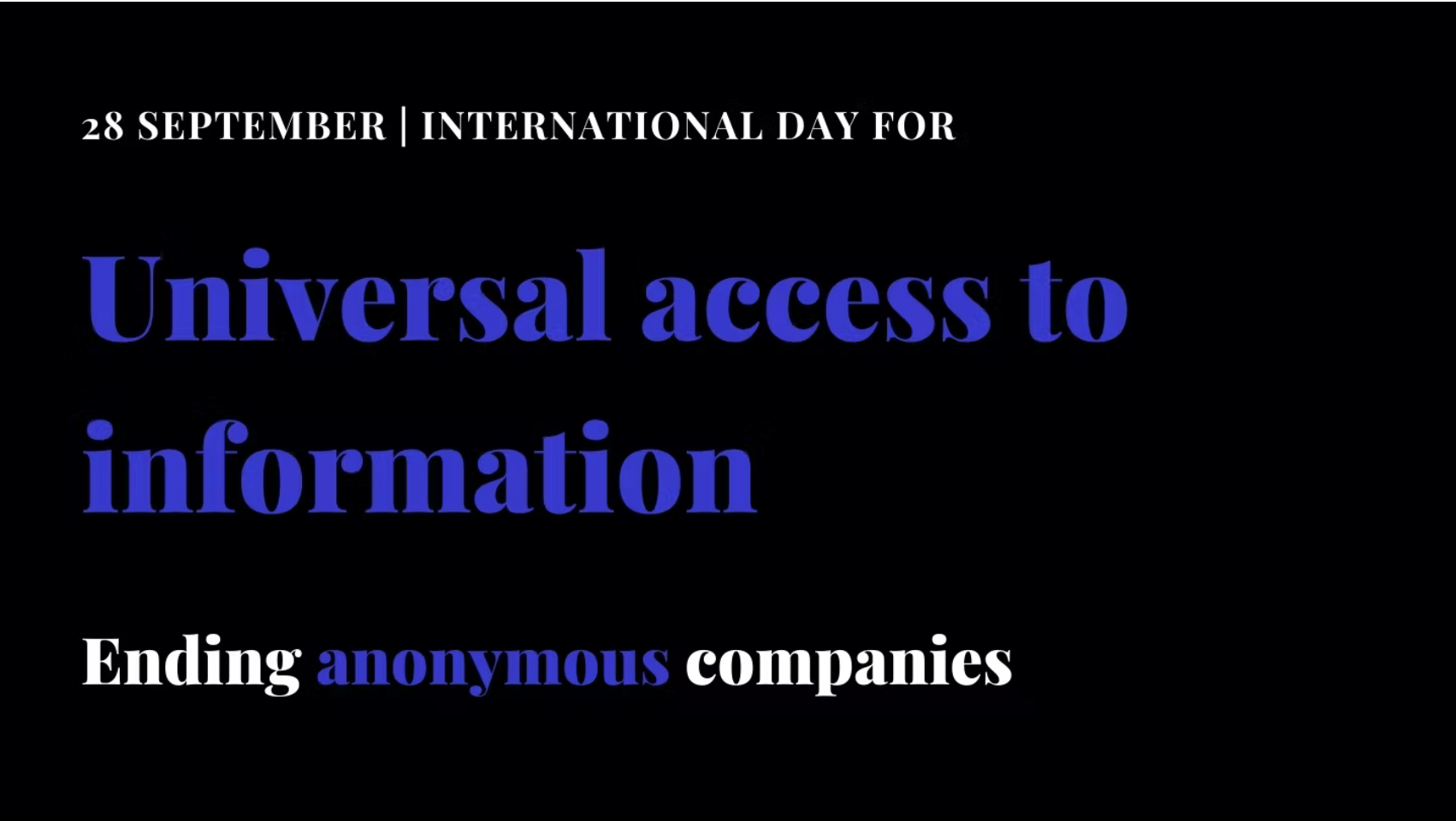Access to beneficial ownership information remains a long term goal

If money is power, understanding who owns companies is the essential starting point for really understanding where power and influence lies. Behind their brand and logo, companies are made up of people – in a typical structure this would include employees, management, and executives, but the most important person in a company is the owner – the person who ultimately benefits from the activities and profits the company makes. Knowing who owns and controls companies is the piece of basic information we all need in order to understand the complicated world we live in.
More and more governments want to make the disclosure of company owners a matter of routine proactive disclosure. They recognise that it helps build market confidence, enables effective taxation, and saves money on schools and hospitals. Anonymous companies also hide nefarious activities behind a screen of secrecy, which enables crime, corruption, money laundering, and illicit financial flows. In order to realise the benefits of beneficial ownership transparency (BOT), the UK government launched the Beneficial Ownership Leadership Group to drive forward a global policy shift towards free, open beneficial ownership (BO) data. At present, five countries are members: Armenia, Kenya, Latvia, Slovakia, and Mexico. The group is convened by the Open Government Partnership (OGP) and Open Ownership (OO) to promote and work towards a set of best practise disclosure principles that will allow for freely downloadable, searchable, quality BO information.
Whilst over 100 countries have access to information laws in place, access to corporate information under these laws is beset with obstacles. Poor quality data, the prohibitive cost of access, the lengthy time it takes to get access to data, and corporate exemptions are a few of such obstacles. This means in practice, access to BO information is not yet available in many countries. The vast majority of people do not know who is behind the companies we rely on daily. Globally, there is a growing momentum to change this and make corporate ownership information available to the public. Over 90 countries have made commitments and 27 have registers in place.
This year, International Day for Universal Access to Information focuses on the right to information in times of crisis and the advantages of public access to information to save lives, build trust, and help formulate sustainable policies through and beyond the COVID-19 crisis. Here are seven ways in which knowing the owners of companies could transform our society and economies for the better.
7 areas where BOT can play a transformative role
Curbing illicit financial flows: hot money from crime, corruption and tax evasion flow out of developing countries and dwarf aid and development budgets. In 2013, Global Financial Integrity estimated that developing countries lost USD 1 trillion per year through illicit financial flows. More recent estimates show that USD 12 trillion – almost 40 percent of all foreign direct investment – passes through empty corporate shells associated with no actual economic activity. BOT is key to addressing this issue and could be a game changer for meeting the Sustainable Development Goals.
Contracting and procurement: Corruption schemes often rely on government contracts to conceal illicit money flows, because it can be difficult to see who the real winners of the contracts are and where the money goes. Combining open contracting data and beneficial ownership, as done in Ukraine, can make it easier to detect corruption and money laundering risks as well as deter fraud. Routine access to BO information on public contracts and procurement will let citizens as well as all government departments and agencies know who is ultimately responsible for the goods and services they receive.
Coronavirus support packages: Trillions of dollars have been spent this year by governments to support companies through the economic turndown caused by coronavirus. Tracking where this money ends up is impossible without quality BO information.
Environmental, Social, and Governance (ESG) ratings: ESG ratings are used by investors to determine the sustainability credentials of companies or investments. BO has a key role to play in ESG ratings, because at the end of the day there is always a person behind a company. Knowing the identity of that person (the beneficial owner) means investors can make informed decisions. Evidence for such decisions would include assessing how the beneficial owner’s other companies approach ESG matters.
Land rights: knowing the beneficial owners of companies that own land helps communities understand who is benefiting from new real estate developments or who is ultimately responsible for adverse environmental impacts of pollution. Open Ownership recently launched a joint programme with the Extractives Industries Transparency Initiative (EITI) to help identify the beneficial owners of oil, gas and mining projects as a starting point to economy wide disclosures.
Media and social media: As the plurality of our media has grown for the better, we have done little to design new ways of supporting users to understand what this new world of information means. Understanding ownership and control of all media outlets can support this. Citizens have a right to know who owns the media and controls content in order to help them know whether something is accurate information or misinformation/fake news. Alongside media, social platforms are another area where information on ownership would empower users to query and understand why certain types of content and information appear in their feeds.
Safeguarding democratic elections: Anonymous shell companies used to conceal donations to political parties or campaigns is a major vulnerability for open and fair elections. These donations can fundamentally alter democratic outcomes where no information is available on the true sponsors behind online political advertisements, news sites, or other campaign and candidate expenditure. BOT allows for proper scrutiny of dark money sources, curtails the political risk they may present, and enhances public trust in the integrity of elections.
Publication type
Blog post